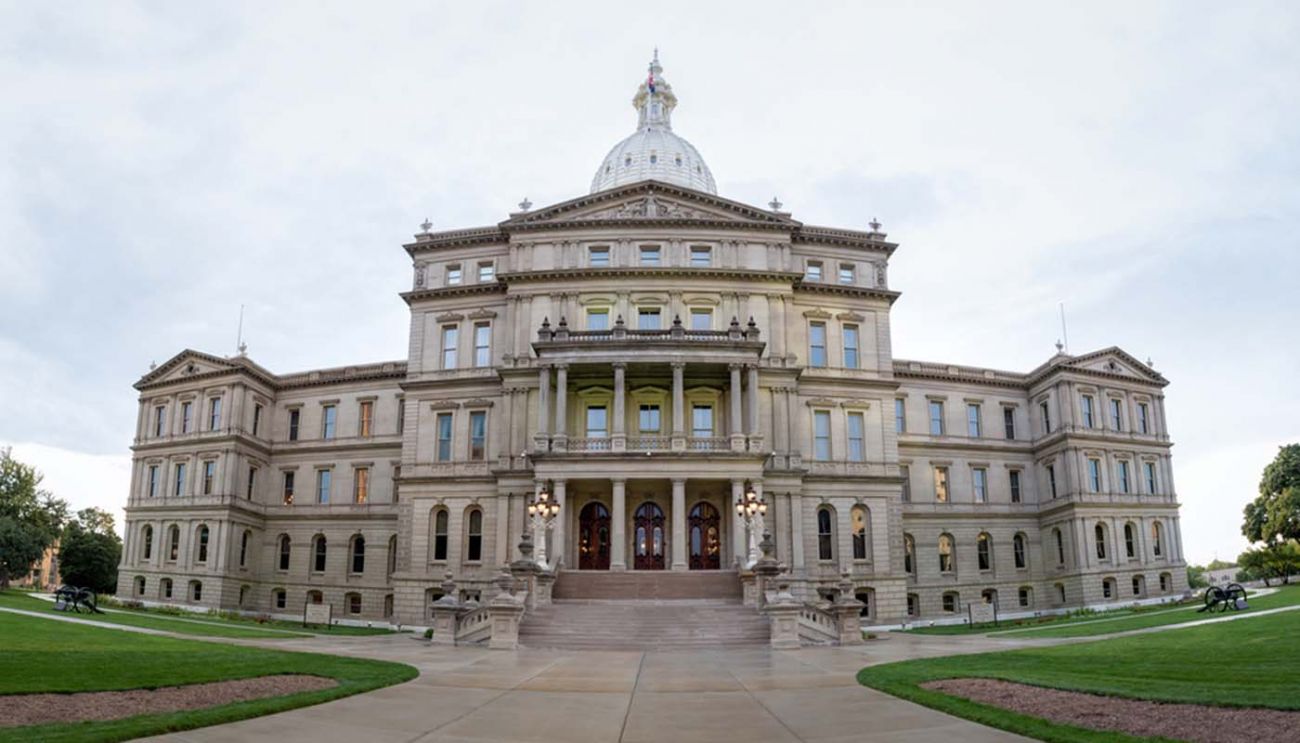Score one for bipartisanship: Michigan Dems, GOP pass ‘raise the age’ bills

Bipartisan legislation to classify 17-year-olds as juveniles in Michigan’s criminal justice system is heading to the governor’s desk after receiving widespread approval in both the House and Senate this week.
Under existing law, 17-year-olds are automatically classified as adults when tried and sentenced in criminal cases. The bills to “raise the age” to 18 would bring Michigan in line with 46 other states.
Sen. Pete Lucido, R-Shelby Township and Sen. Sylvia Santana, D-Detroit, two of the legislation’s sponsors, said lawmakers have tried and failed to pass similar legislation for five years and that it’s “overdue.”
“We are leaders, not followers,” Lucido said. “Why are the other states making that decision? And over the 50, 60 years we’ve had this on the books, we couldn’t realize that this is wrong and doing injustice?”
The legislation would:
- Automatically put 17-year-olds in family court rather than adult criminal court, where they can be assigned alternatives to incarceration such as monitoring and counseling or circumventing the traditional court process altogether
- Stop 17-year-olds from being housed in the same cell as adults
- Allow prosecutors to try those under age 17 as adults for violent offenses such as rape or murder with court approval
- Would not retroactively apply to 17-year-olds who have already been sentenced as adults
The package passed nearly unanimously on the House floor Tuesday and on the Senate floor Wednesday.
The bills have received strong bipartisan support since they were introduced early this year, but were held up in committee over disagreements in how to fund programming and housing for the 17-year-olds who would be diverted to the juvenile system until an agreement was reached last week.
Now, the state and counties split the cost of juvenile justice. Under the legislation, the state would fully fund the cost of the 17-year-olds entering the juvenile system for the first few years to help ease the burden on counties.
Spokespeople for House and Senate leaders said the package was one of a handful of criminal justice initiatives discussed in meetings with Gov. Gretchen Whitmer as an area of agreement after a bruising budget battle.
She is expected to sign the package into law.
“We are supportive of the overall goal of the legislation and are reviewing the substitutes that were adopted in committee,” said Chelsea Lewis, a spokeswoman for Whitmer.
Advocates say the change would help reduce recidivism among young offenders and increase their chances of earning higher wages over the course of their lives.
“This plan is about giving young people who make mistakes a chance to turn their lives around,” said Rep. Graham Filler, R-DeWitt, one of the bill sponsors. “All of the research is telling us that teenagers who are sentenced to the adult prison system are much more likely to be arrested again in the future, when compared to young people who go through the juvenile system, which is focused on rehabilitation.”
Michigan League for Public Policy President Gilda Jacobs said “this is a huge win for Michigan kids and families, our local communities and economies, our national reputation, and our society as a whole.”
Bethany Wicksall of the state Budget Office raised concerns before a House committee Tuesday about how the legislation’s changes would be funded, noting the state Department of Health and Human Services would be required to collect and audit new data and ensure counties are reimbursed for additional costs, which would require more funding and staff.
There’s also no method in the bills for DHHS to determine what reasonable reimbursement rates are, “so we’re a little concerned about long term cost containment,” she said.
The bills wouldn’t take effect until Oct. 1, 2021.
During a House hearing Tuesday, Rep. David LaGrand, D-Grand Rapids, questioned why there should be such a long delay. Lucido said “it’s just in case” they need to make adjustments to the legislation in the next few years if necessary.
See what new members are saying about why they donated to Bridge Michigan:
- “In order for this information to be accurate and unbiased it must be underwritten by its readers, not by special interests.” - Larry S.
- “Not many other media sources report on the topics Bridge does.” - Susan B.
- “Your journalism is outstanding and rare these days.” - Mark S.
If you want to ensure the future of nonpartisan, nonprofit Michigan journalism, please become a member today. You, too, will be asked why you donated and maybe we'll feature your quote next time!




